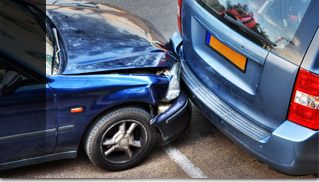 There are millions of car accidents per year in the United States -hopefully you won’t ever be involved in one. If you are, however, knowing what to do post-accident can save you a lot of time and trouble –especially when dealing with local law enforcement. Police officers are very busy professionals and the accurate collection of accident data and evidence can be difficult, especially if the accident scene is chaotic. Here are some ways that you can help and protect your own interests too:
There are millions of car accidents per year in the United States -hopefully you won’t ever be involved in one. If you are, however, knowing what to do post-accident can save you a lot of time and trouble –especially when dealing with local law enforcement. Police officers are very busy professionals and the accurate collection of accident data and evidence can be difficult, especially if the accident scene is chaotic. Here are some ways that you can help and protect your own interests too:
First, call the Police immediately
A significant part of what local police departments do is react to car accidents and document what has happened. It’s their job, so call them right away. And, in case you were wondering, no matter how small an accident may seem, it is best to call the police. Don’t let another party talk you out of it! If they try to, it might mean they have some situation that they don’t want revealed –like an expired license or even an intoxication issue.
But You Don’t Need To Wait for the Police to Arrive
If you are so inclined, calmly find out who the others involved are in the accident and any witness’s names. You never know, it could take some time before the police arrive and important people may leave before the police get there. Definitely find out who was involved and the names of any anyone that saw the accident occur. Should anyone contest any versions of the accident, and how it occurred, the names and contact information of observers could be very valuable to have.
Take Pictures
It may seem unnecessary, but start taking some pictures. You don’t even have to get out of the car when you do this. Just snap a few photos with your cell phone from your driver’s seat that clearly shows the area of impact from your vantage point. And, if you are comfortable with doing so, and it is safe, exit your car and continue taking pictures. When you have pictures, you have objectively documented the reality of the accident. This way, when the cars are moved, or, if the police report isn’t accurate, you will now have the physical evidence to protect yourself and others.
Record Conversations
This will almost certainly seem unnecessary but try and record any conversations you have with those at the accident scene, and this includes the police. It’s 100 percent legal, and it can often be helpful later if the statements on the police report aren’t accurate or if the other person’s insurance contests the report. Most smart phones today have the capability to easily record conversations.
Know that You Can Change a Police Report too
After an accident, you can request a copy of a police report and you should do this. If you feel that it is inaccurate, you can ask for it to be changed. Police officers make mistakes too. So if you find that you have been misquoted, or if the information on the report is just inaccurate, contact the local precinct, and arrange to meet with the officer so that the report can be modified. This is commonly done.
In summary, no one wants to go spring into action at the scene of a car accident but if it involves you or family, protecting your interests could save you a lot of time and trouble. As we mentioned in this article, consider recording as much of it as you can just in case you need to present the information to an interested parties at a later time.
Source: Metro Kia